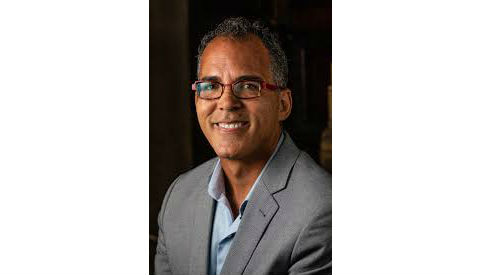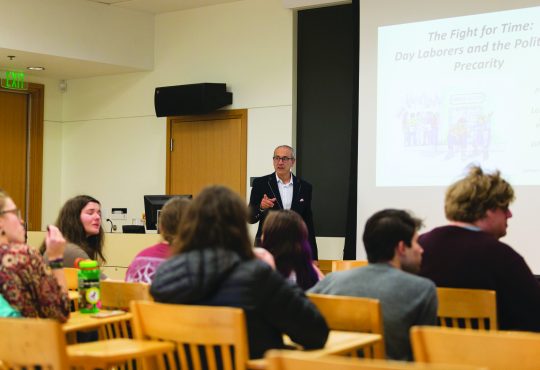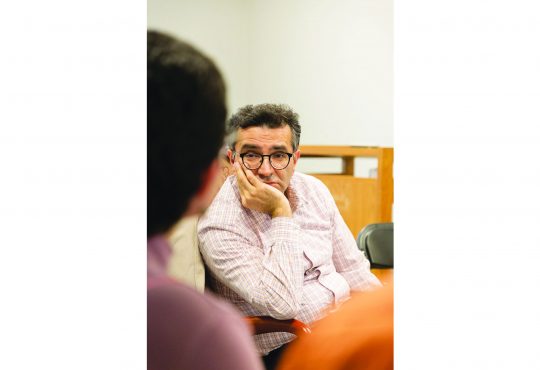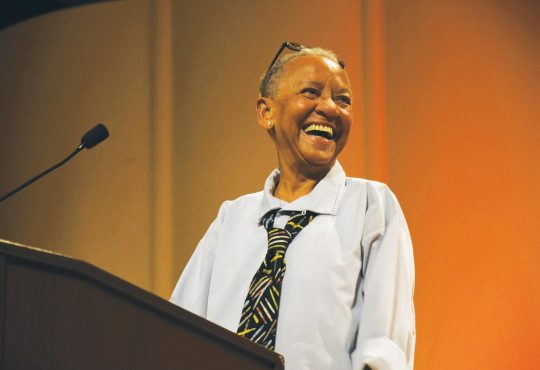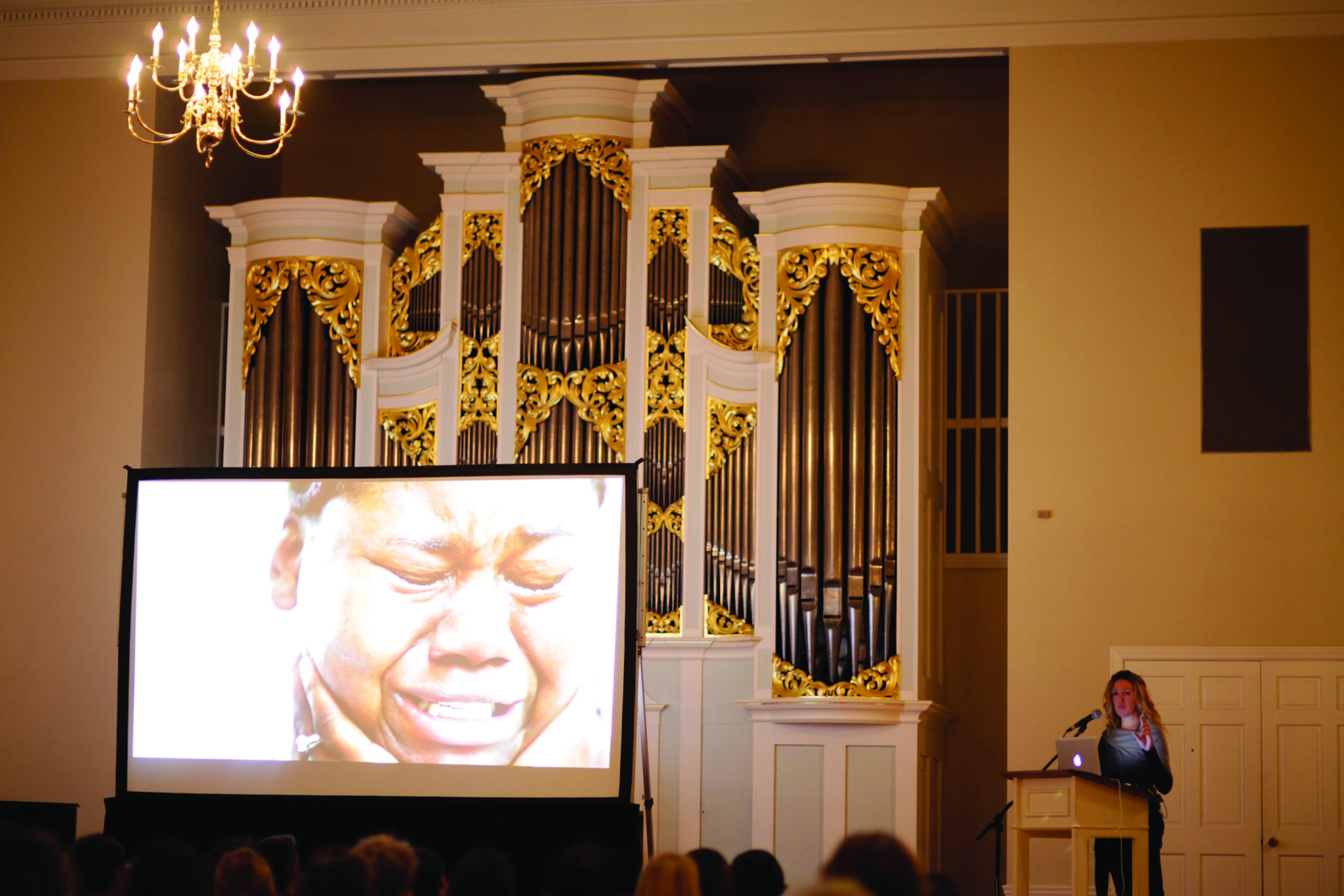
Last Tuesday and Wednesday, Melanie Burford, co-winner of the 2006 Pulitzer Prize in photojournalism for her work covering Hurricane Katrina, made a visit to our campus to speak in this year’s iteration of the Brown and Haley Lecture Series.
A few other students and I had the great privilege of speaking with Burford on Wednesday before her second lecture titled, “Eyes of the Storm: The Photographic Story of Hurricane Katrina From the Photographers at The Dallas Morning News.” Those of us that attended learned that Burford is not just a photojournalist — she is a phenomenal storyteller.
She told us about her background, some of her favorite experiences and, most importantly, she gave advice based on her experiences in the journalistic realm — advice that I would like to pass on to you.
Burford didn’t take a single photo until she was 19 years old in her final year of high school. When she was starting out, she worked two jobs at McDonalds to fund her craft.
When she was 22, Burford came to America and attended the Missouri Photo Workshop, where she learned the first important lesson that she passed on to us.
“Photography isn’t about controlling. It is about witnessing,” Burford said. She was adamant on this point, that is important that you do not try and create a moment but rather you should experience it.
Soon after attending the workshop, Burford lost her entire life savings in payments for school.
“At one point I had $10 dollars for three months,” she said. “I had to go to food banks, I was sleeping on a friend’s couch, and I was about to be deported.”
When she eventually got some money, Burford started buying doughnuts and taking them to the classes, which she could no longer afford to take.
“I’d sit in on their classes,” Burford said. “It was really tough, no one would hire me because I didn’t have a green card.”
As we continued speaking, Burford taught us her next lesson.
“It’s got nothing to do with the camera and everything to do with the people,” she said. “That’s what photography is. Realizing that was the second biggest moment in my career.”
“The first time in my life when I did a story and it wasn’t about the photos was the best moment in my career,” she continued. “I don’t take photos any more for the sake of taking photos — it has to speak to me.”
As she began talking about her upcoming project — one about AIDS that will take her back to Dallas, where she won the Pulitzer — she also told us about some of the advice she learned during her previous projects.
For Burford, it is about the relationship that she has with people. She told us about a story that she worked on for three years called “The Fight for Sugar Hill” and about the amazing relationship she formed with a pastor named Rock Carpenter.
“It isn’t about the finished product. I have to have a relationship,” Burford said. “There has to be respect and trust. Pastor Rock is the perfect example of that.”
Even though she is often working on stories and is constantly terrified that she is going to miss something, Burford said that some days she won’t even bring her camera to the story on which she is working.
“Give yourself permission to put down the camera,” she said. “The longer a camera is in front of your face, the less you can communicate with the people. Don’t remove yourself from having conversations with people face to face.”
Burford also poignantly advised that photojournalists “photograph adjectives, not verbs.” Those viewing the photos don’t want to see “the doing,” she said, but instead they would like to see why it is that a mom loves her daughter, or just how much she does, as one example.
“It’s a gift people are giving you to allow you to take their photos,” Burford said. “So do justice to the people’s voice and always respect the courage it takes for someone to stand in front of your camera.”
As the time in our brief but fruitful interview began to dwindle, Burford left us with two more very important pieces of advice.
“Your ethics must never change. Never change,” she emphasized with great sincerity.
She then left us with what may be the most important advice that she could have given.
“Don’t change your art into what you think people want from it,” she said, which I believe really speaks for itself.
As remarkable as Burford’s career has been and the advice that she gave, equally remarkable was the passion she has for what she does, and the fact that you could hear it in every word she spoke.
“I love life and the fact that with my camera I can walk into anyone’s life and hang out with them,” Burford said. “I love what I do.”
“The whole gift of this profession is that you find people that inspire you,“ she continued. “Really, I just like hanging out with people.”
For more information about Burford and to see some of the projects she has worked on, visit melanieburford.com or primecollective.com.
[PHOTO COURTESY / GREG NISSEN]

